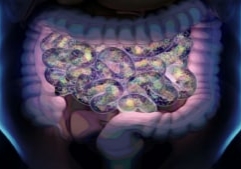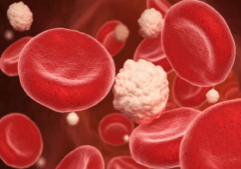The Carbohydrates Committee addresses outstanding scientific issues through discovery, research tools and translational messaging related to how carbohydrate-rich foods, food components and formulations are associated with consumption behavior, diet quality and health outcomes.
Why is this research important?
Carbohydrates are an important source of energy and nutrients in the food supply. The committee focuses its work on understanding sugar, fiber, and carbohydrate quality as they relate to human health.
Research Focus Areas:
- Advance scientific evidence and research tools to further understanding of how fiber relates to human health outcomes.
- Characterize nutrient intakes and overall diet quality of various carbohydrate restricted or modified diet patterns.
- Clarify and communicate research tools examining causal relationships between energy containing food/ingredients and body composition.
- Promote informed decision-making on food choices - focused on carbohydrate quality.
IAFNS is currently offering graduate student and post-doc stipends for research using the comprehensive database (click here to apply).
Archer Daniels Midland Company
BENEO - Group
Cargill, Incorporated
Conagra Brands
General Mills, Inc.
The Hershey Company
Ingredion Incorporated
Keurig Dr Pepper
Mondelēz International
Potatoes USA
ACADEMIC ADVISORS
GOVERNMENT ADVISOR
David Baer, PhD, US Department of Agriculture, Agriculture Research Service
Projects Supported by the Committee:
Publications
Role for Diet in Normal Gut Barrier Function: Developing Guidance within the Framework of Food-Labeling Regulations
American Journal of Physiology- Gastrointestinal and Liver Physiology, 2019
Role for Diet in Normal Gut Barrier Function: Developing Guidance Within the Framework of Food-labeling Regulations
American Journal of Physiology, 2019
Currently available evidence in animal models and in vitro systems has shown that certain dietary interventions can be used to reinforce the intestinal barrier to prevent the development of disease.
Global Evaluation of the Use of Glycaemic Impact Measurements to Food or Nutrient Intake
Public Health Nutrition, 2021
While there is some consensus around measures of glycaemic impact, others present opportunities for harmonisation.
Development and Validation of Test for ‘Leaky Gut’ Small Intestinal and Colonic Permeability Using Sugars in Healthy Adults
Gastroenterology, 2021
Oral monosaccharides and disaccharides are used to measure in vivo human gut permeability through urinary excretion. Baseline 12C-mannitol excretion precludes its use; 13C-mannitol is the preferred probe for small intestinal permeability.
Finding the Sweet Spot: Measurement, Modification and Application of Sweet Hedonics in Humans
Advances in Nutrition, 2021
Sweetness is a sensation that contributes to the palatability of foods, which is the primary driver of food choice. Thus, understanding how to measure the appeal of sweetness and how to modify it are key to effecting dietary change for health.
Events
No results.












